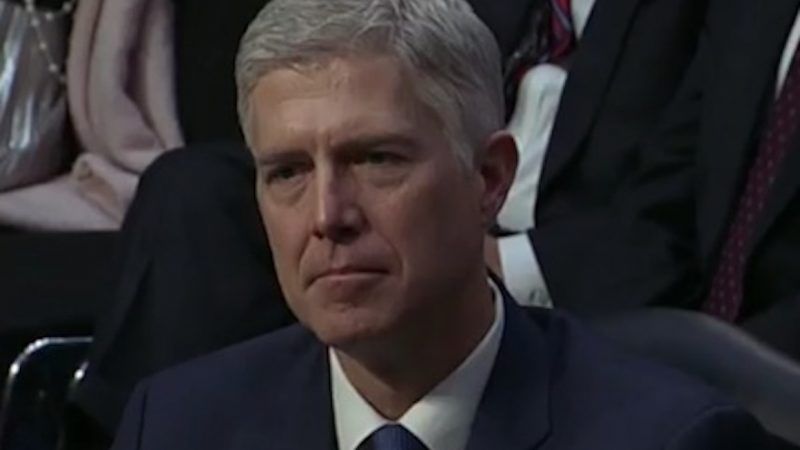In Sharp Dissent, Neil Gorsuch Faults SCOTUS for Letting the Attorney General 'Write His Own Criminal Code'
The conservative justice comes out swinging on behalf of the non-delegation doctrine.

The U.S. Constitution places the federal lawmaking power in the hands of Congress. Yet today a narrow majority of the U.S. Supreme Court held that Congress did not violate the Constitution, even though it passed a law which delegated a significant degree of lawmaking authority to the attorney general. Writing in dissent, Justice Neil Gorsuch faulted his colleagues for letting Congress "hand off to the nation's chief prosecutor the power to write his own criminal code."
At issue in today's ruling in Gundy v. United States is the Sex Offender Registration and Notification Act of 2006 (SORNA). Among other things, SORNA requires convicted sex offenders to register, check in periodically in person, and share personal information with the authorities.
It also says this: "The Attorney General shall have the authority to specify the applicability of the requirements of this subchapter to sex offenders convicted before the enactment of this chapter." Put differently, Congress left it up to the attorney general to decide how to deal with the estimated 500,000 individuals whose sex crime convictions predate SORNA's passage.
"It would be easy enough to let this case go," Justice Gorsuch acknowledged in his dissent. "After all, sex offenders are one of the most disfavored groups in our society. But the rule that prevents Congress from giving the executive carte blanche to write laws for sex offenders is the same rule that protects everyone else." In Gorsuch's view, SORNA effectively combined the Article I powers of Congress with the Article II powers of the executive in a single federal official. That result, he argued, marks "the end of any meaningful enforcement of our separation of powers."
Gorsuch's dissent was joined by Chief Justice John Roberts and Justice Clarence Thomas. Justice Brett Kavanaugh took no part in the case.
In her majority opinion, Justice Elena Kagan, joined by Justices Ruth Bader Ginsburg, Stephen Breyer, and Sonia Sotomayor, argued that if the congressional delegation at issue in this case qualifies as unconstitutional, "then most of Government is unconstitutional—dependent as Congress is on the need to give discretion to executive officials to implement its programs."
Kagan also buttressed her opinion by favorably citing and quoting from a past dissent written by the late Justice Antonin Scalia, who warned the Court against feeling "qualified to second-guess Congress regarding the permissible degree of policy judgment that can be left to those executing or applying the law."
Justice Samuel Alito concurred in the Court's judgment today, making the final vote 5-3. But Alito also wrote separately to say that if the Court wanted to reconsider its overall jurisprudence in this area, "I would support that effort. But because a majority is not willing to do that," he continued, "it would be freakish to single out the provision at issue here for special treatment." In other words, Alito might agree with the reasoning in Gorsuch's dissent in a different future case.
The Supreme Court's opinion in Gundy v. United States is available here.


Show Comments (65)